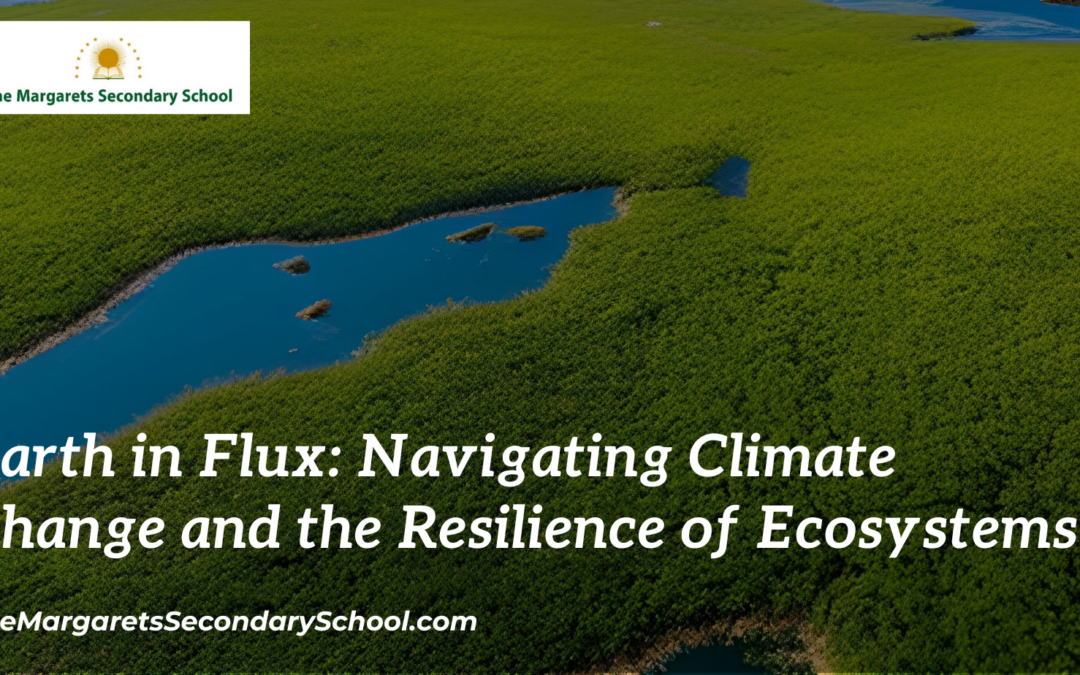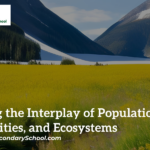Climate Change and Earth’s Ecosystems
The planet we call home, with its interconnected web of life, is undergoing a profound transformation—one driven by the phenomenon of climate change. Earth’s ecosystems, from the rainforests to the polar ice caps, are facing unprecedented challenges as temperatures rise, sea levels increase, and weather patterns become increasingly unpredictable. In this exploration, we delve into the intricate relationship between climate change and Earth’s ecosystems, shedding light on the impacts, adaptations, and urgent actions needed to ensure a sustainable future.
Climate Change: A Global Challenge
Climate change, driven largely by human activities such as the burning of fossil fuels and deforestation, results in the accumulation of greenhouse gases in the atmosphere. This leads to a warming planet, altering weather patterns, exacerbating natural disasters, and triggering cascading effects across ecosystems.
Impacts on Biodiversity and Ecosystems
As temperatures rise, ecosystems face disruptions that challenge their delicate balance. Coral reefs, crucial marine habitats, are threatened by ocean acidification and bleaching events. Forests face increased risks of wildfires and pests, while Arctic ecosystems experience rapid ice melt and habitat loss. The interconnectedness of species within these ecosystems means that disruptions to one element can lead to a domino effect, impacting the entire system.
Ecosystem Services and Human Well-being
Ecosystems provide a wide range of services that sustain human life and well-being. Clean air and water, pollination of crops, regulation of climate, and cultural and recreational benefits are just a few examples. The degradation of ecosystems due to climate change has direct implications for human health, food security, and overall quality of life.
Adaptation and Resilience
In the face of climate change, ecosystems demonstrate remarkable adaptability and resilience. Some species may migrate to more suitable habitats, while others might evolve to better cope with changing conditions. Ecosystems with high biodiversity tend to be more resilient, as the variety of species allows for greater flexibility in response to change.
Conservation Efforts and Restoration
Conservation efforts play a crucial role in mitigating the impacts of climate change on ecosystems. Protecting and restoring habitats, implementing sustainable land management practices, and establishing marine protected areas are steps that can help safeguard biodiversity and ecosystem services.
The Role of Indigenous Knowledge
Indigenous communities often possess deep knowledge of their local ecosystems, accumulated over generations. This wisdom, rooted in harmony with nature, can provide valuable insights into strategies for adapting to and mitigating the effects of climate change.
Collective Action and Global Responsibility
Addressing climate change and its impact on ecosystems requires collective action on a global scale. The Paris Agreement, an international effort to combat climate change, aims to limit global warming to well below 2 degrees Celsius. This agreement underscores the urgency of reducing greenhouse gas emissions and promoting sustainable practices.
Conclusion
The relationship between climate change and Earth’s ecosystems is complex, intertwined, and urgent. As we witness the unprecedented changes taking place across the planet, we are called to recognize our role as stewards of the environment. The protection of ecosystems and the mitigation of climate change require concerted efforts, scientific innovation, policy changes, and a shift in our societal values. By working together, we can restore balance to Earth’s ecosystems, mitigate the impacts of climate change, and ensure a harmonious future for both nature and humanity.





